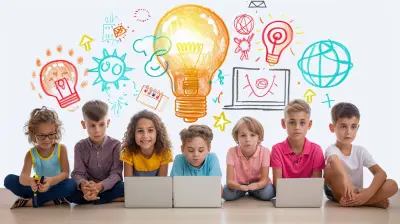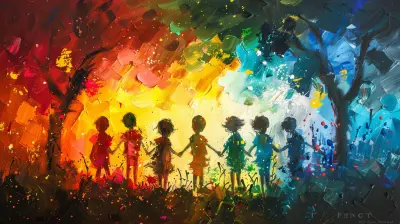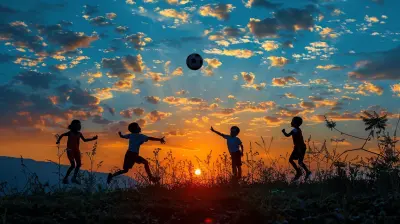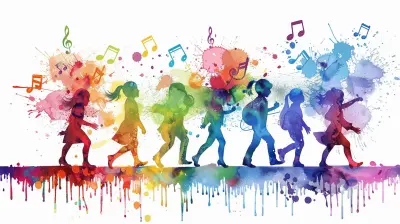Lifelong Learning and Its Impact on Civic Engagement and Community
12 May 2025
Look, we get it—learning after school sounds about as appealing as voluntarily eating kale chips. But what if I told you that lifelong learning isn't just about memorizing useless facts or taking online courses you’ll never finish? (We’re all guilty of abandoning that one seminar on "Quantum Physics for Beginners.")
Nope, lifelong learning is actually the secret ingredient to building better communities, increasing civic engagement, and—dare I say—making the world a slightly less chaotic place. So buckle up, because we’re about to dive into why continuing to learn may just be the best thing you can do for yourself and everyone around you.
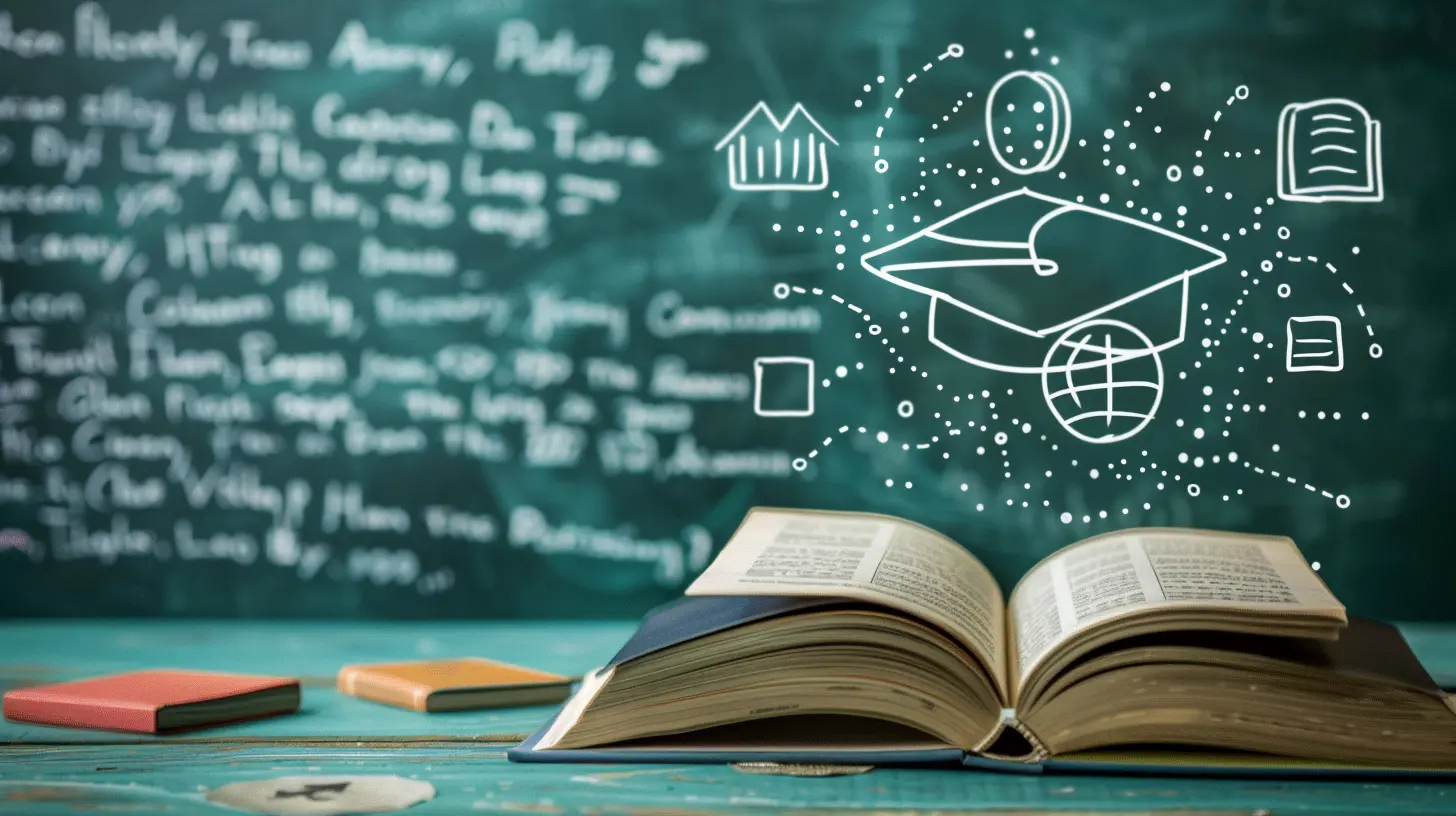
What Exactly Is Lifelong Learning?
Before we start throwing around big words, let's break it down like a bad dance move. Lifelong learning simply means continuing to gain knowledge and skills beyond formal education. Yep, that’s it. No diploma required.It can be as structured as taking a university course in political science or as informal as listening to a podcast about world history while folding your laundry. (Multitasking: the real MVP.) The point is, it's a conscious effort to keep growing intellectually, socially, and even emotionally.

Why Should You Care About Lifelong Learning?
Sure, ignorance might be bliss, but it's also a great way to make poor decisions, fall for misinformation, and stay stuck in a rut. Who wants that? Lifelong learning keeps your mind sharp, your curiosity alive, and—let’s be honest—gives you more interesting things to talk about than just the weather.Still not convinced? Let’s talk about how this whole "learning" thing actually improves civic engagement and strengthens communities.
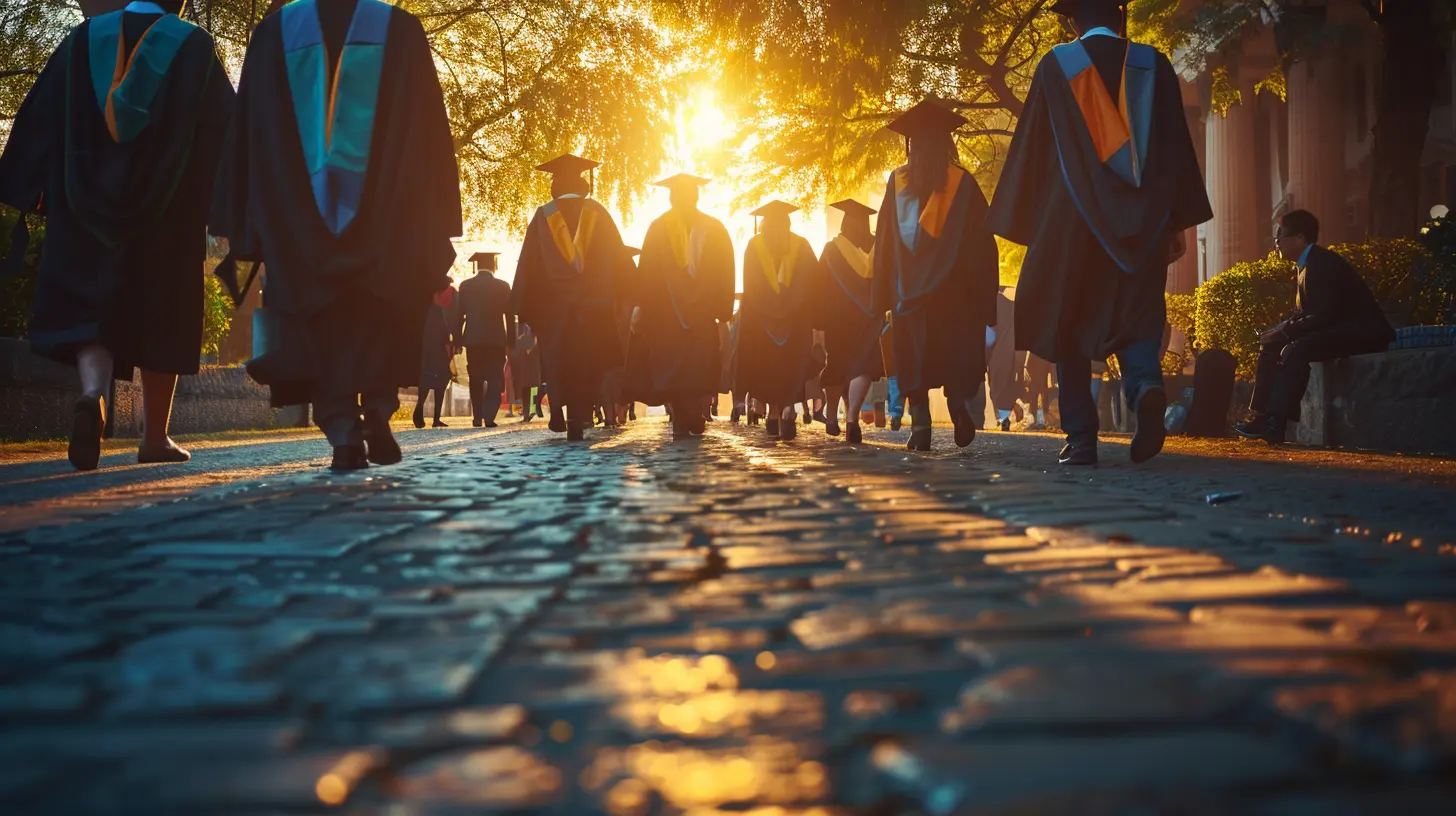
The Connection Between Lifelong Learning and Civic Engagement
Civic engagement is just a fancy term for "giving a darn about society and actually doing something about it." Lifelong learners tend to be more involved in their communities, more active in political and social issues, and—surprise, surprise—less likely to fall for propaganda.1. Smarter Citizens Make Better Decisions
Imagine voting in an election without knowing anything about the candidates or the policies. Sounds like a disaster waiting to happen, right? Lifelong learners take time to educate themselves on issues, making informed choices that actually benefit society.And let’s be real—understanding how things work makes it a lot harder for shady politicians to fool you with empty promises and vague slogans. (Looking at you, "We're gonna make things better!"—Okay, but how?)
2. Critical Thinking? Yes, Please!
Critical thinking is like a mental filter that keeps nonsense from clogging up your brain. Lifelong learners are way better at questioning sources, spotting fake news, and avoiding the dreaded Facebook comment wars.When people actually take time to research and form thoughtful opinions, discussions become productive instead of, well, a virtual shouting match. Groundbreaking concept, right?
3. Increased Volunteerism and Community Participation
Lifelong education doesn’t just fill your brain with facts—it also fills your heart with purpose. Studies show that people who are continuously learning are more likely to volunteer, donate to charities, and participate in local events.Why? Because the more knowledge you have, the more you understand the struggles of others. And once you understand the struggles of others, it’s a lot harder to sit back and do nothing about it.
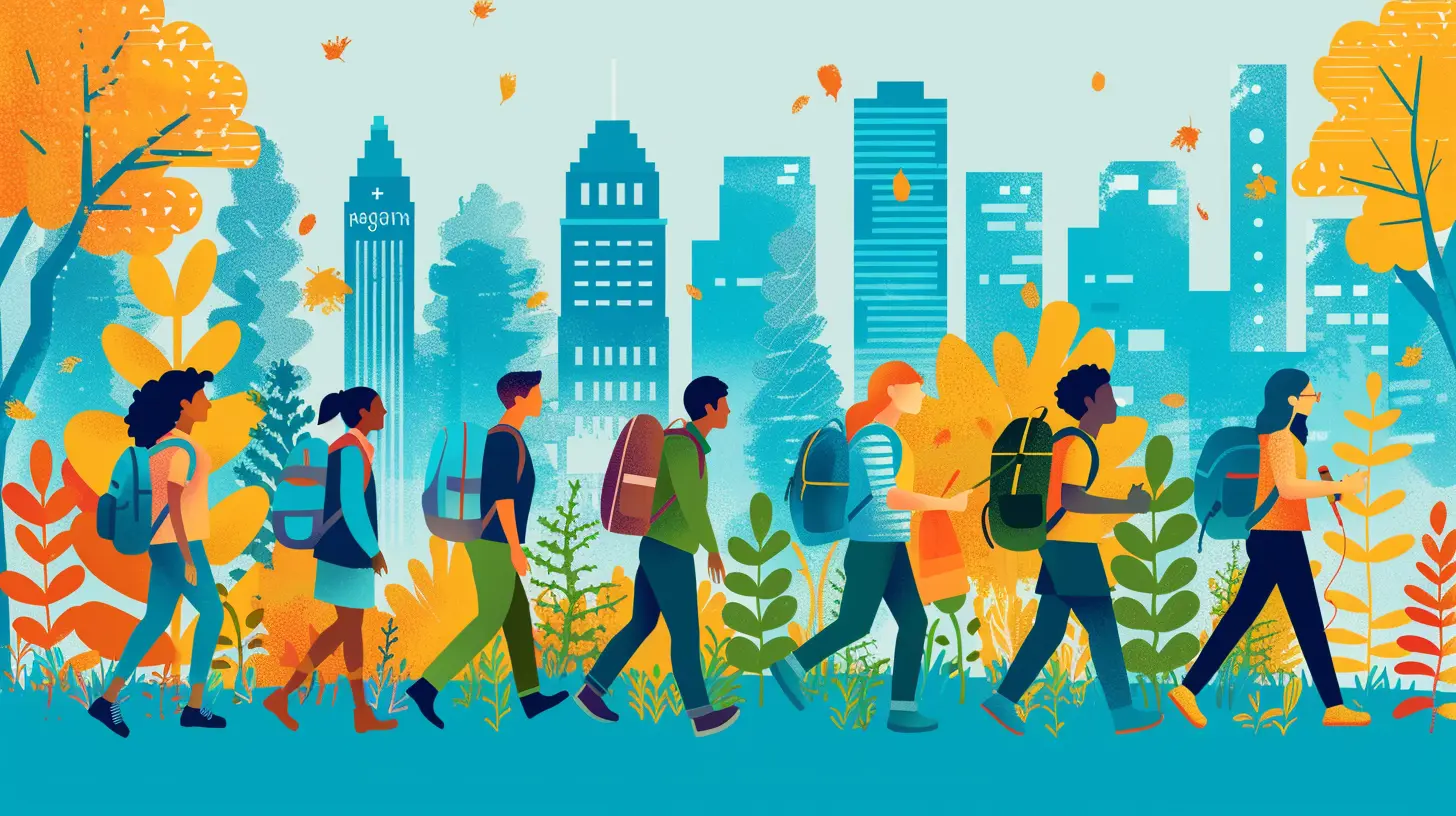
How Lifelong Learning Builds Stronger Communities
Now, let’s talk about the big picture. Society isn’t built overnight (unless you’re playing The Sims, in which case, congratulations on your digital utopia). Strong communities need engaged, informed, and passionate people—AKA lifelong learners.1. Bridging Social Divides
There’s nothing quite like a good debate to highlight just how wildly different people’s perspectives can be. But when people commit to lifelong learning, they’re more open to hearing different viewpoints, understanding cultural differences, and—this is a big one—finding common ground.Instead of staying in our little echo chambers, lifelong learners actively seek out new perspectives. And guess what? That breaks down prejudices and encourages genuine conversation instead of baseless stereotypes.
2. Economic Growth and Stability
A community filled with learners is a community that thrives. Think about it: when people keep learning new skills, they’re more employable, start new businesses, and contribute to the local economy.Plus, let’s not forget that innovation doesn’t just happen magically. It takes continuous learning, problem-solving, and maybe a few failed attempts before big ideas turn into real solutions. (Looking at you, inventors of early flying machines—nice try.)
3. More Engaged Youth
Kids and teenagers learn by example. If they see adults constantly growing, questioning, and improving, they’re more likely to adopt that mindset themselves.Lifelong learning creates a ripple effect. Adults who continue to educate themselves are more likely to mentor younger generations, encourage curiosity, and emphasize the importance of knowledge. And honestly, isn’t that a way better legacy to leave behind than just another TikTok dance trend?
The Digital Age: A Lifelong Learner’s Playground
Thanks to the internet (and no thanks to your 50 open tabs), information is more accessible than ever. Online courses, podcasts, webinars, articles—there’s no shortage of ways to keep learning.The challenge? Knowing how to sift through the junk. Not all sources are reliable, and misinformation spreads faster than a cat video. Lifelong learners develop the ability to fact-check, research, and question everything before blindly accepting it as truth.
So, next time you see a suspiciously dramatic headline about how "Scientists Confirm Eating Ice Cream Cures All Diseases," maybe—just maybe—do a little digging first.
Final Thoughts: Lifelong Learning Isn’t Just a Hobby—It’s a Superpower
In a world where misinformation spreads like wildfire, where apathy seems like the default setting, and where communities often feel more divided than ever, lifelong learning is the game-changer we desperately need.It’s not just about personal growth (though, hey, being the smartest person in the room isn’t a bad perk). It’s about actively shaping a stronger, more engaged, more compassionate society.
So, whether you’re picking up a book, attending a lecture, or just googling "how does the stock market actually work?"—congratulations, you’re already making the world a better place.
Now, go forth and soak up knowledge like the intellectual sponge you are. Your community will thank you for it.
all images in this post were generated using AI tools
Category:
Lifelong LearningAuthor:

Olivia Lewis
Discussion
rate this article
5 comments
Carrie Fuller
Lifelong learning empowers individuals to engage actively in their communities. By fostering curiosity and knowledge, we can ignite change, inspire collaboration, and build stronger, more vibrant societies. Keep learning and transforming together!
May 20, 2025 at 2:26 PM

Olivia Lewis
Thank you for your insightful comment! I completely agree—lifelong learning is vital for fostering civic engagement and community strength. Together, we can create meaningful change.
Peregrine McIntyre
Lifelong learning nurtures informed citizens, fostering critical thinking and empathy. By continuously expanding our knowledge, we not only enhance personal growth but also contribute meaningfully to our communities and civic responsibilities.
May 19, 2025 at 3:41 AM

Olivia Lewis
Thank you for highlighting the vital connection between lifelong learning and civic engagement. Your points on critical thinking and empathy are essential for strengthening our communities.
Kendall McGrady
Learning keeps us engaged—let’s grow our communities together! 🌱📚
May 17, 2025 at 5:00 AM

Olivia Lewis
Absolutely! Lifelong learning not only enhances personal growth but also fosters stronger, more connected communities. Let's embrace this journey together! 🌟
Elin Larsen
This article highlights the vital connection between lifelong learning and civic engagement. Embracing continuous education empowers individuals to participate more actively in their communities. By fostering critical thinking and awareness, lifelong learning not only enriches personal growth but also strengthens the social fabric, ultimately benefiting society as a whole.
May 16, 2025 at 11:04 AM

Olivia Lewis
Thank you for your insightful comment! I completely agree that lifelong learning is essential for empowering individuals and enhancing community involvement.
Oriel Whitley
Lifelong learning is like a community potluck—everyone brings something different to the table! The more we learn, the tastier our discussions become. Who knew civic engagement could be served with a side of humor and a sprinkle of knowledge?
May 16, 2025 at 2:38 AM

Olivia Lewis
Absolutely! Lifelong learning enriches our community, making discussions vibrant and inclusive, much like a potluck feast. Each contribution enhances our collective experience!

